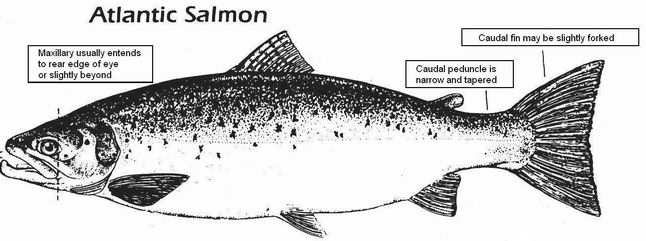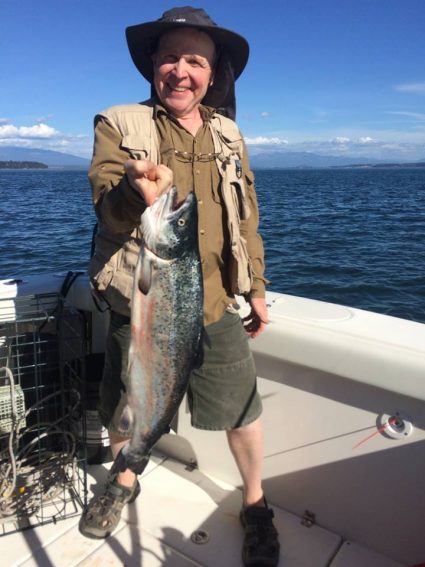Out of the Frying Pen,
Into the Sound
By Anna Prewitt
This August, while Anacortes students were scrambling to prepare for our early start to the school year, Atlantic salmon, Cooke Aquaculture Company, and San Juan fishermen were also scrambling- the fish were floundering throughout the waters of the Puget Sound, and the people were trying to determine their numbers and to prevent their spread.
On August 19th, a system of net pens containing commercially farmed Atlantic salmon collapsed. The farm was located in Deepwater Bay, on the east side of Cypress Island- that’s 4.4 miles from our high school.
Cooke Aquaculture, the Canadian company who owned the pen, reported that their Cypress farm contained 305,000 Atlantic salmon. Estimates on the number of fish that escaped range from an initial 4,000 to 5,000 by the Cooke company all the way to 185,700 by the Washington State Department of Natural Resources.
An Atlantic Salmon Catch Map the Washington Department of Fish and Wildlife has compiled shows nearly two thousand catches of the farmed fish ranging from Olympia up to northwest Vancouver Island.
The net pens in the commercial fish farm by Cypress reportedly experienced problems with their anchors as early as July, but Cooke put off total refurbishment of the Cypress farm until after the harvest, which was then scheduled for late August. This fish farm is one of many in Washington- Cooke company alone has eight pens in the state, and is proposing the construction of another. Washington, along with Maine, is one of the biggest producers of these farmed fish in the U.S.
Atlantic salmon are classified by the Washington Department of Fish and Wildlife as a “non-native species,” but “do not pose significant risk to native fish populations.” They do not breed naturally with native Pacific fish. Almost all Atlantic salmon existent are in fish farms.

A Guemes fisherman interviewed by the Seattle Times illustrates the passions behind the problem of escaped fish and the salmon’s presence in our Sound. Nik Mardesich told the Times that local residents “won’t even take [the Atlantic Salmon] for crab bait. I don’t want to just throw them on the beach, so I am trying to give them away.”
The Atlantic salmon from the Cooke net pens were supposed to be “released to the store… not the Sound,” Washington Department of Ecology’s Larry Altrose summed up for the Times. The Washington Department of Health says that “today, most of the salmon available for us to eat is farmed.” Regardless of its ecological impacts, the salmon today on your dinner plate is likely Atlantic and was likely farmed yesterday. It could have been in our Puget Sound.

Sources:
https://www.dnr.wa.gov/atlanticsalmon
http://wdfw.wa.gov/fishing/salmon/atlantic.html
http://wdfw.wa.gov/fishing/salmon/atlantic_catch_map.php
http://wdfw.wa.gov/ais/salmo_salar/
https://www.doh.wa.gov/CommunityandEnvironment/Food/Fish/FarmedSalmon